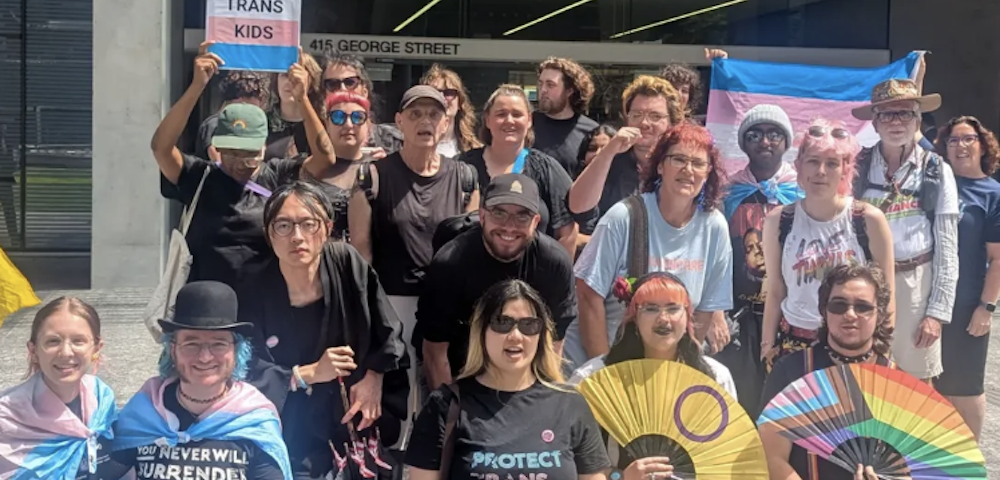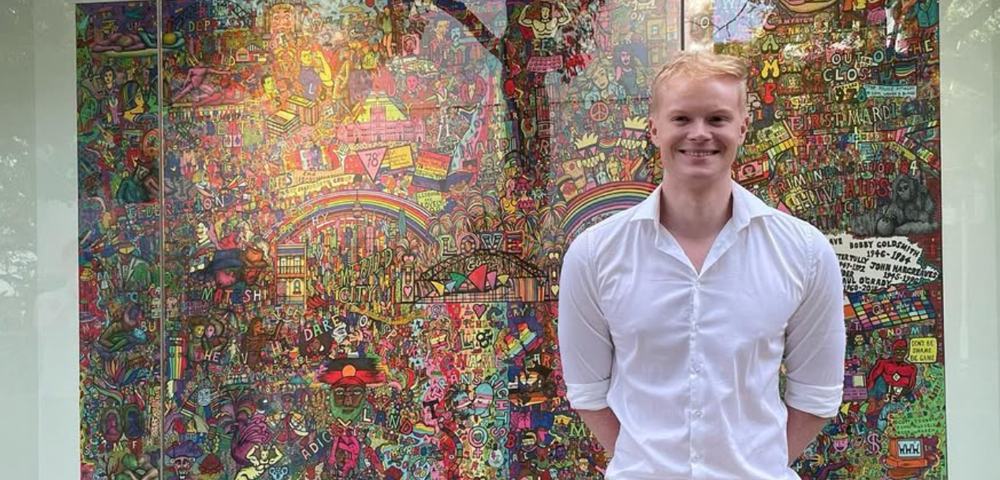
A Ban On Pride Events Has Sparked Mass Protests In Hungary
Hungary has witnessed a surge of public protests following the government’s enactment of a law effectively banning LGBTQ+ Pride events.
This legislation, passed on March 18, has not only mobilised thousands within the nation but has also drawn the attention and criticism of international figures and organisations.
Mass Protests Erupt in Budapest
On March 25, thousands of demonstrators converged in Budapest to voice their opposition to the new law.
Chanting slogans such as “democracy” and “assembly is a fundamental right,” protesters blocked major thoroughfares and bridges, including the Elisabeth, Liberty, Petőfi, and Margaret bridges, effectively paralysing traffic in parts of the capital.
The protests were marked by the use of colourful smoke bombs and a palpable sense of urgency among participants.
Protesters blocked traffic on several bridges in central Budapest on Tuesday, opposing a new law that effectively bans LGBTQ+ Pride events and limits the right to assembly.#nocomment pic.twitter.com/lJrHrY1ftp
— NoComment (@nocomment) March 26, 2025
One protester, Paula Antalfy, expressed her dismay, stating, “I feel like love should be free, and who you love is not a decision in any way.”
The legislation in question not only bans Pride events but also permits authorities to utilise facial recognition technology to identify attendees, with violators facing fines of up to 200,000 Hungarian forints (£420/$550).
Critics argue that this move mirrors similar laws in Russia and represents a broader strategy to marginalise the LGBTQIA+ community under the guise of child protection.
The law’s passing has sparked significant political turmoil. Opposition MPs protested within the parliamentary chamber, deploying multicoloured smoke bombs to show their dissent.
In response, some liberal lawmakers have been barred from parliament and faced record fines.
International bodies have also voiced their concerns.
The United Nations Human Rights Council condemned the legislation, stating it “results in arbitrary and discriminatory restrictions on the rights of LGBTIQ+ individuals to freedom of expression, peaceful assembly and privacy.”
Celebrities Urged to Boycott Hungary
In a show of solidarity with Hungary’s LGBTQIA+ community, prominent figures such as Chappell Roan, Emeli Sandé, and Alanis Morissette have been called upon to cancel their upcoming performances in the country.
The Peter Tatchell Foundation, a UK-based human rights organisation, has been at the forefront of this initiative.
In letters addressed to these artists, the foundation urged them to “stand with Hungary’s LGBT+ people by cancelling your performance.”
Alternatively, if proceeding with their concerts, the foundation requested that they “hold a press conference where you condemn the Pride ban and express support for the LGBT+ community, and do the same on stage when you perform.”
Peter Tatchell, a veteran human rights campaigner stated “These performers are beloved LGBT+ icons, their visibility gives hope. That’s why it’s vital they speak out or pull out. I’m urging them: don’t carry on with business as usual.”
“This is not about boycotting the Hungarian people, it’s about challenging a homophobic regime that uses culture to sanitise and pinkwash its repression.”
Amidst the escalating tensions, Budapest’s Mayor, Gergely Karácsony, has reaffirmed his support for the LGBTQ+ community.
Prior to the law’s enactment, he appeared on the Budapest Pride podcast, advocating for the continuation of the parade and expressing his backing for the establishment of an LGBTQ+ community centre and district in the city.
Despite the government’s stance, Budapest Pride organisers remain defiant, labelling the law as “fascism” and vowing to proceed with planned events.
They argue that the legislation is a direct attack on the rights of all Hungarians to protest and assemble peacefully.
“This is not child protection, this is fascism,” they said in a statement from Budapest Pride organisers.
“The Hungarian government is trying to restrict peaceful protests with a critical voice by targeting a minority. Therefore, as a movement, we will fight for the freedom of all Hungarians to protest” they continued.
“Hungarians are freedom-loving… we know that if the government tries to ban protests with critical voices, they will face resistance from the whole of society.”
“That is why [they] need a scapegoat, a distraction, another wave of hatred… they lie to their voters about a child-protection measure but there is no child protection in this bill.”
People in Budapest protest against a law that limits freedom of assembly, a law that aims to ban the annual Pride march #Hungary #orban #protest #prode #lgbtq pic.twitter.com/zzPDSd9hrx
— Anita Komuves (@AnitaKomuves) March 25, 2025









